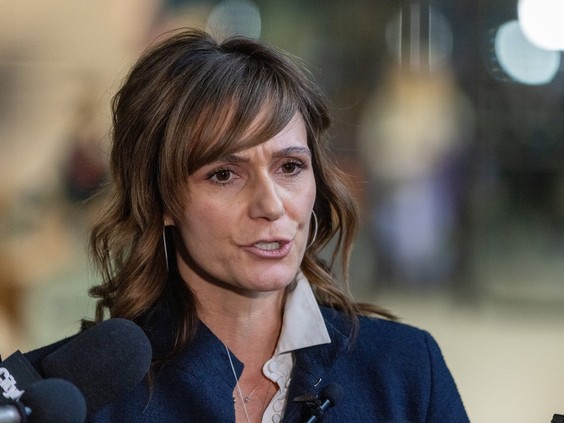Top Stories
Calgary’s Blanket Rezoning Sparks Debate Over Housing Affordability

The recent implementation of blanket rezoning in Calgary has ignited significant controversy, with critics calling for an immediate repeal. Advocates argue that the current approach undermines community engagement and fails to address the pressing issue of housing affordability. Many contend that the City Council’s decision to enforce citywide zoning changes without thorough consultation has led to increased housing costs rather than the intended relief for residents.
Calgary’s blanket rezoning was introduced as a strategy to tackle the ongoing housing crisis. This policy alters zoning regulations across nearly all residential neighborhoods. While proponents claim it has bolstered housing supply, critics argue that it has simultaneously driven up prices. In several inner-city areas, newly constructed duplexes are now priced between $800,000 and $1.1 million, often replacing older, more affordable homes. This trend is making it increasingly challenging for young families and first-time buyers to secure housing in neighborhoods where they have longstanding ties.
As Calgary’s population is projected to increase by approximately 88,000 residents by 2028, the demand for diverse housing options continues to grow. However, many believe that the method of growth is equally important. Critics of blanket rezoning highlight that this policy removes public hearings, disconnects development from essential infrastructure planning, and limits the ability for communities to influence the future of their neighborhoods.
In Bowness, a community experiencing significant densification, local representatives have raised concerns regarding the lack of infrastructure to support new developments. One such representative proposed a development pause to assess the current infrastructure. This proposal was rejected by the majority of the council. Additionally, efforts to streamline planning approvals were also dismissed, despite being described as practical and cost-neutral solutions aimed at enhancing housing processes while ensuring citizen engagement.
The data since the introduction of blanket rezoning reveals a sharp increase in development permits for rowhouses and townhouses in established areas, with a staggering 271 percent increase year-over-year, resulting in 152 permits issued. Similarly, permits for semi-detached homes have surged by 289 percent, with 35 permits granted. While these numbers indicate growth, they also place substantial strain on aging infrastructure and diminish public trust in the planning process.
Concerns remain regarding the lengthy wait times for applications focused on purpose-built rental units and housing for seniors, which are still hindered by planning bottlenecks. Builders have raised these issues during public hearings, emphasizing the need for affordable and accessible housing in areas where it is most needed.
In light of these developments, many Calgarians are calling for a reassessment of the city’s planning strategies. They argue for a return to graduated residential zoning and site-specific public hearings to ensure that community voices are heard in the decision-making process. As the city grapples with rapid growth, the discussion surrounding housing affordability and community engagement remains at the forefront of public discourse.
-

 Education3 months ago
Education3 months agoBrandon University’s Failed $5 Million Project Sparks Oversight Review
-

 Science4 months ago
Science4 months agoMicrosoft Confirms U.S. Law Overrules Canadian Data Sovereignty
-

 Lifestyle3 months ago
Lifestyle3 months agoWinnipeg Celebrates Culinary Creativity During Le Burger Week 2025
-

 Health4 months ago
Health4 months agoMontreal’s Groupe Marcelle Leads Canadian Cosmetic Industry Growth
-

 Science4 months ago
Science4 months agoTech Innovator Amandipp Singh Transforms Hiring for Disabled
-

 Technology3 months ago
Technology3 months agoDragon Ball: Sparking! Zero Launching on Switch and Switch 2 This November
-

 Education3 months ago
Education3 months agoRed River College Launches New Programs to Address Industry Needs
-

 Technology4 months ago
Technology4 months agoGoogle Pixel 10 Pro Fold Specs Unveiled Ahead of Launch
-

 Business3 months ago
Business3 months agoRocket Lab Reports Strong Q2 2025 Revenue Growth and Future Plans
-

 Technology2 months ago
Technology2 months agoDiscord Faces Serious Security Breach Affecting Millions
-

 Education3 months ago
Education3 months agoAlberta Teachers’ Strike: Potential Impacts on Students and Families
-

 Science3 months ago
Science3 months agoChina’s Wukong Spacesuit Sets New Standard for AI in Space
-

 Education3 months ago
Education3 months agoNew SĆIȺNEW̱ SṮEȽIṮḴEȽ Elementary Opens in Langford for 2025/2026 Year
-

 Business4 months ago
Business4 months agoNew Estimates Reveal ChatGPT-5 Energy Use Could Soar
-

 Technology4 months ago
Technology4 months agoWorld of Warcraft Players Buzz Over 19-Quest Bee Challenge
-

 Business3 months ago
Business3 months agoDawson City Residents Rally Around Buy Canadian Movement
-

 Technology2 months ago
Technology2 months agoHuawei MatePad 12X Redefines Tablet Experience for Professionals
-

 Business3 months ago
Business3 months agoBNA Brewing to Open New Bowling Alley in Downtown Penticton
-

 Technology4 months ago
Technology4 months agoFuture Entertainment Launches DDoD with Gameplay Trailer Showcase
-

 Technology4 months ago
Technology4 months agoGlobal Launch of Ragnarok M: Classic Set for September 3, 2025
-

 Technology4 months ago
Technology4 months agoInnovative 140W GaN Travel Adapter Combines Power and Convenience
-

 Science4 months ago
Science4 months agoXi Labs Innovates with New AI Operating System Set for 2025 Launch
-

 Technology4 months ago
Technology4 months agoNew IDR01 Smart Ring Offers Advanced Sports Tracking for $169
-

 Top Stories2 months ago
Top Stories2 months agoBlue Jays Shift José Berríos to Bullpen Ahead of Playoffs










